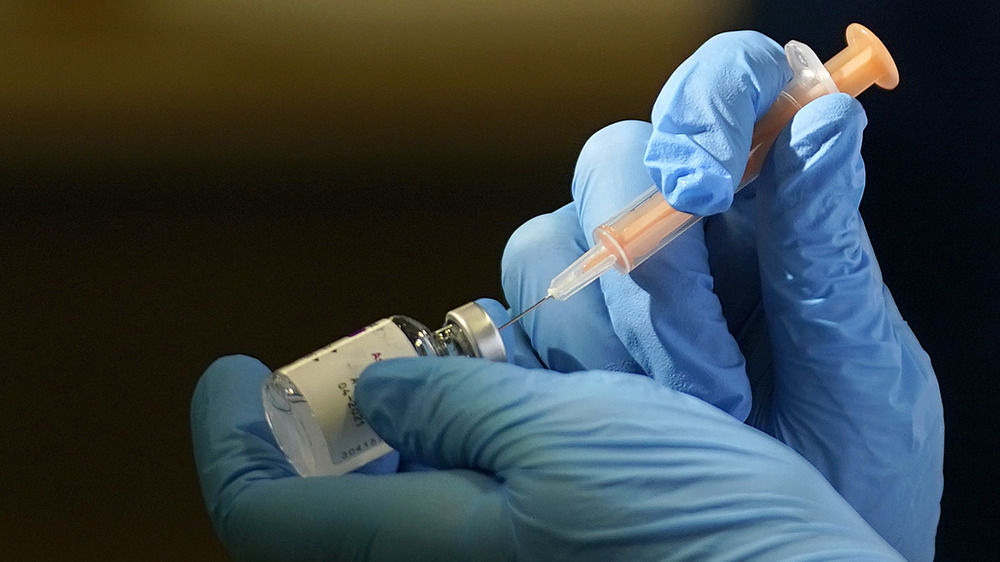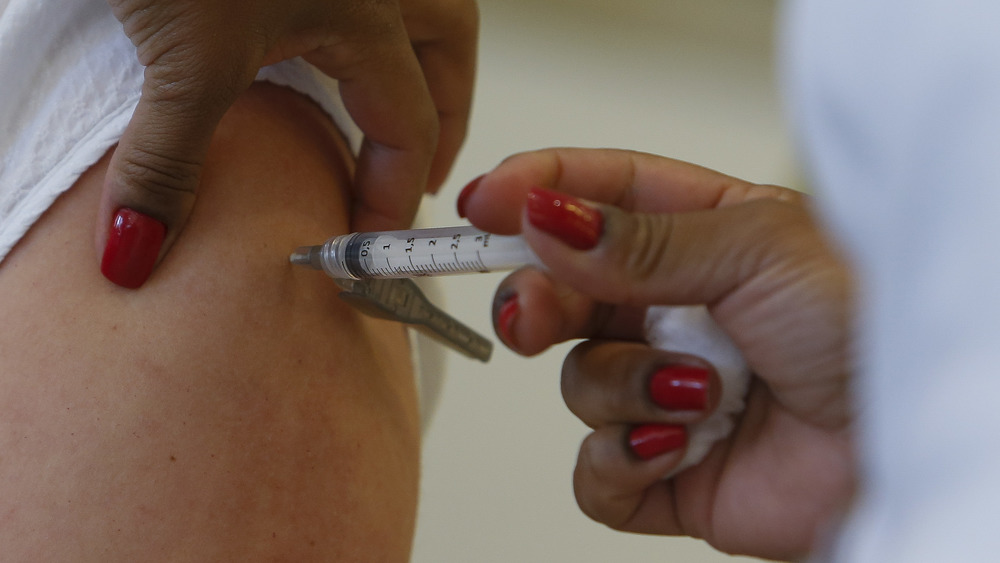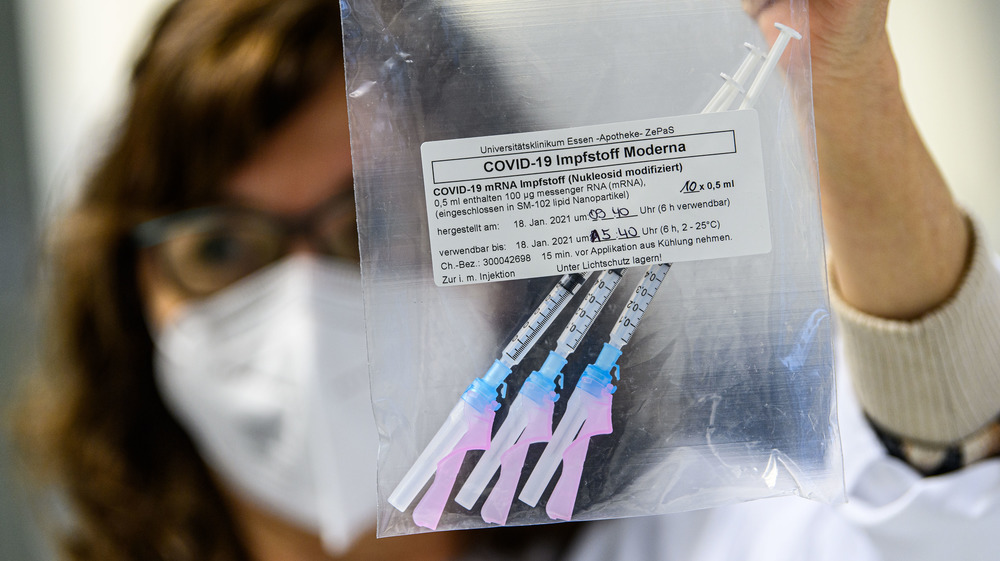The Surprising Reason You Should Still Wear A Mask After Getting The COVID-19 Vaccine
We celebrated when we heard that the FDA cleared two vaccines to be used in the fight against COVID-19. The vaccines, one developed by Moderna, and the other by Pfizer and BioNTech, are administered in two doses three weeks (for the Pfizer vaccine) to a month (Moderna) apart (per the CDC).
Because these vaccines are new and their approvals were expedited under an emergency use clause, there are still a number of lingering questions about how they work and how long they are effective for. Given all these doubts, medical experts like Carol Winner, MPH, MSE, and founder of Give Space, say this is not yet the time to abandon all the precautions we'd been taking to keep COVID-19 at bay.
"Researchers are confident that the vaccines are 94-95% effective, but uncertain as to its protection against asymptomatic transmission. It is possible that a person gets vaccinated and subsequently exposed to the virus, and although they do not have symptoms can become an asymptomatic carrier," Winner tells The List.
Expert: We need to give the vaccine time to work
We may all be anxious to get back into life as we knew it before 2020, but the COVID-19 vaccine isn't going to help us get to where we were right away. Winner says, "Vaccines work by stimulating the production of antibodies that prevent the virus from attaching and entering the target cell. If the individual vaccinated has a robust response, they can be exposed and the virus passes out of them without causing disease."
Because we're all made differently, we also react to vaccines in different ways. "If the immunity triggered is at a sustained high level, the vaccinated individual remains resistant. If however, the levels of antibody response either is poor to start with or declines, the vaccinated individual can be infected from exposure, which means subsequently they may infect others," Winner explains.
This doesn't just apply to COVID-19 vaccines, but to all vaccines as a whole. "For COVID, we do not know how long the immunity will last for the average person. In other words, there is a difference between what is possible in the grander scheme of life, and what actually happens. There is always a range of responses. So even after taking the vaccine, the person could unwittingly spread the virus," Winner warns. "Continued research will give us more answers. In the meantime, we must continue preventive practices to protect ourselves and our community."
Expert: "It's going to take months"
As a result, Winner, a former public health specialist who has worked alongside the CDC and DHHS, suggests that masks should only be removed when someone who is vaccinated hangs out with others who have also been vaccinated, or who might have already been sick with COVID-19. "Those that have not had the vaccine or some level of protection from having had COVID-19, will continue to have to wear masks for an indefinite period of time," she tells The List.
"[E]ven reaching herd immunity at 80% still means 1 in 5 people are susceptible to COVID-19 if they are exposed. How can they be exposed? By anyone coming into the community, particularly if they are coming from another country with a low vaccination rate," Winner says. "It is going to take many months before most Americans get vaccinated and it's important to understand that not everyone can or will get vaccinated, so practicing safety measures is important."


